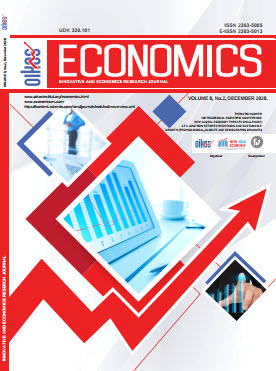A DOWNSIDE TO THE BRAIN GAIN STORY
DOI:
https://doi.org/10.2478/eoik-2020-0017Abstract
We consider how the possibility of international migration affects an individual's educational choices in their home country. Educational choice dictates skill, and the paper refers to the highly educated, highly skilled as "professionals"; others are "non-professionals." Without the opportunity to emigrate abroad people choose their educational investment (and hence their skill level) as we might expect. To this normal choice the higher status given professionals is also accounted for. Consider now how the opportunity for international migration to a higher paying job affects both professionals and non-professionals. Despite the higher status a professional enjoys, once an individual takes the possibility of migration to a different country into consideration, he may well decide to choose education leading to non-professional employment. A result of this paper is that if there are low chances of obtaining professional jobs in the host country, individuals may well choose an educational track leading to a low occupational profession in order to increase their chances of obtaining a job in the host country after migration. Thus, all home country students may choose the non-professional education track. Those who might have otherwise pursued higher, professional education may forgo that schooling. The theory developed here explains the forsaken schooling phenomenon. This phenomenon shows that low-skilled and skilled home country workers are willing to accept low skilled positions in host countries. This leads to the forgoing of professional schooling in the home country since it is not optimal for the worker in the home country to choose a high skilled education since, they will be overqualified in the host country. This will have a long run affect. As time goes on, therefore, people who consider migrating abroad will have either lower years of schooling, or generally have not completed professional schools (technical-vocational or tertiary).
